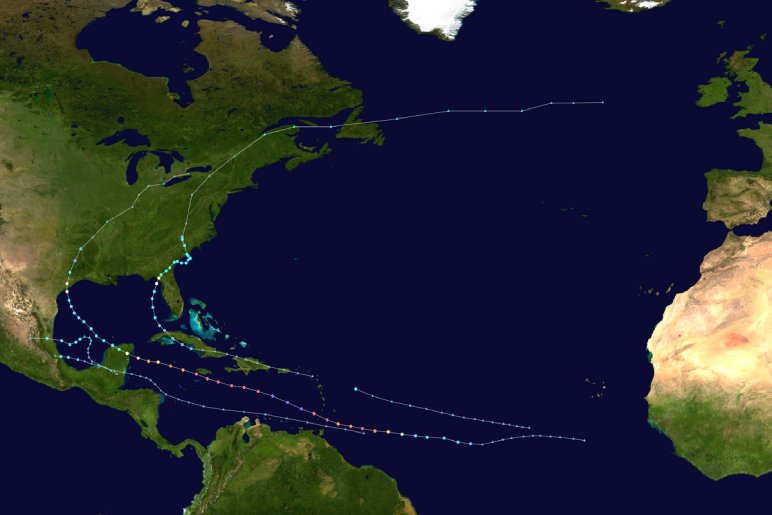The Atlantic hurricane season is a period of heightened anticipation and preparation for millions of people living along the coastlines of North America and the Caribbean. This annual event, typically spanning from June 1st to November 30th, brings with it the potential for devastating storms that can inflict significant damage and loss of life.
Understanding the Atlantic Hurricane Season
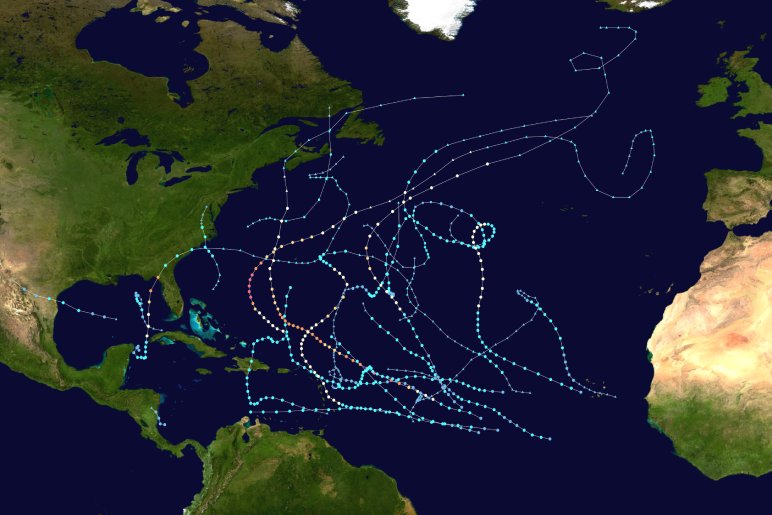
The Atlantic hurricane season is a yearly event that stretches from June 1st to November 30th. During these months, the conditions in the Atlantic Ocean are ideal for the formation of tropical cyclones, which can evolve into powerful hurricanes. This blog aims to demystify this natural phenomenon and provide essential knowledge.
What is a Hurricane?
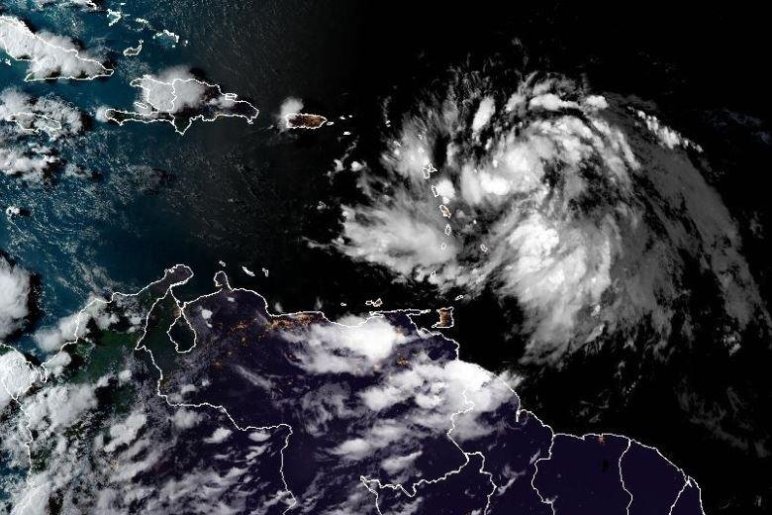
A hurricane is a massive, rotating storm system characterized by intense low pressure, strong winds, heavy rainfall, and storm surges.
These destructive phenomena originate over warm ocean waters, typically near the equator. As they gather energy from the warm ocean, they intensify into powerful cyclones. Hurricanes are classified based on wind speed using the Saffir-Simpson Hurricane Wind Scale, with Category 5 being the most catastrophic. When hurricanes make landfall, they can cause widespread devastation to coastal regions, including flooding, property damage, and loss of life.
Factors Influencing Hurricane Activity
Several factors contribute to the intensity and frequency of hurricane seasons:
- Ocean Temperature: Warm ocean waters provide the energy hurricanes need to form and strengthen.
- Atmospheric Conditions: Wind shear and air pressure patterns influence hurricane development.
- Climate Change: While the exact impact is still being studied, there’s evidence suggesting climate change might be intensifying hurricane activity.
The Impact of Hurricanes
Hurricanes are formidable forces of nature with far-reaching consequences.
Their destructive power is manifested in high winds that can demolish buildings, uproot trees, and transform debris into deadly projectiles. Storm surges, the abnormal rise of seawater, inundate coastal areas, causing catastrophic flooding. Heavy rainfall often accompanies hurricanes, leading to inland flooding, landslides, and river overflows. Beyond the immediate physical damage, hurricanes disrupt economies, displace communities, and strain infrastructure. The long-term effects include environmental degradation, such as erosion and pollution, and psychological trauma for survivors. Moreover, the increasing frequency and intensity of hurricanes linked to climate change pose significant challenges for coastal regions and the global community.
The Impact of Atlantic Hurricanes
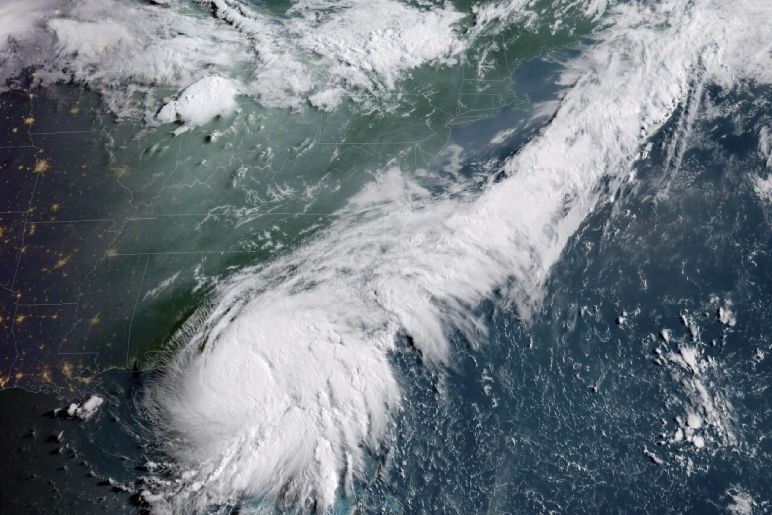
Atlantic hurricanes inflict substantial damage on both human society and the environment.
Powerful winds, torrential rain, and storm surges cause catastrophic destruction to coastal communities, often resulting in widespread loss of life and property. Beyond the immediate devastation, hurricanes disrupt economies, hindering commerce, agriculture, and tourism. The environmental consequences are equally severe, with coastal erosion, saltwater intrusion into freshwater sources, and damage to delicate ecosystems posing long-term challenges. Moreover, hurricanes can trigger secondary hazards such as landslides, floods, and power outages, compounding the overall impact and hindering recovery efforts.
Preparing for the Atlantic Hurricane Season
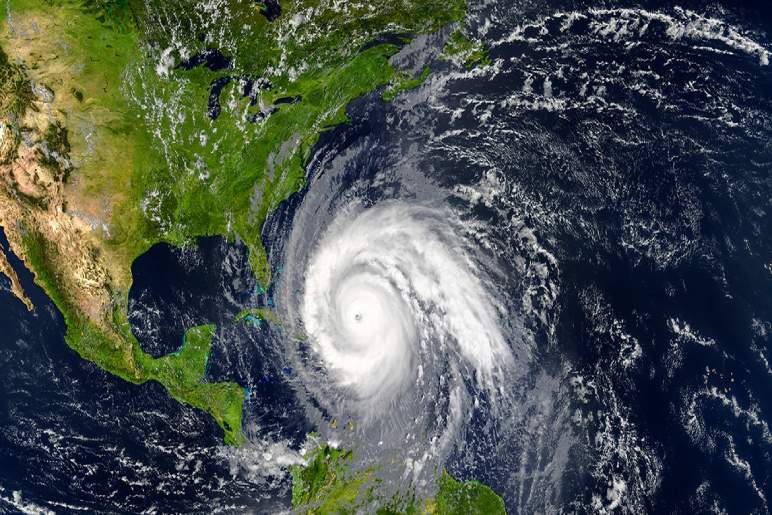
The Atlantic hurricane season is a period of heightened vigilance for millions of people living along the coastlines. While these storms can be unpredictable, taking proactive steps can significantly reduce the risk to life and property.
Create a Comprehensive Evacuation Plan
Knowing your evacuation zone is crucial. Develop a detailed plan that outlines escape routes, designated shelters, and meeting points for family members. Practice your plan regularly to ensure everyone knows their role.
Assemble a Robust Emergency Kit
A well-stocked emergency kit is essential for surviving a hurricane. Include essential supplies such as:
- Water: At least a gallon of water per person, per day for several days.
- Non-perishable food: Canned goods, energy bars, and dried fruit.
- First aid kit: Bandages, antiseptic, pain relievers, and necessary medications.
- Flashlights and batteries: For lighting when the power goes out.
- Battery-powered radio: To stay informed about weather updates.
- Important documents: Copies of insurance policies, identification, and medical records.
Secure Your Home and Property
Protect your property from hurricane damage by:
- Trimming trees: Remove weak or dead branches that could become projectiles.
- Securing outdoor objects: Bring in or securely fasten loose items like furniture and grills.
- Protecting windows: Install hurricane shutters or board up windows with plywood.
- Reviewing insurance coverage: Ensure adequate homeowners insurance with appropriate coverage.
Stay Informed and Follow Guidelines
- Monitor weather forecasts: Stay updated on the latest weather information.
- Heed warnings: Follow the guidance of local authorities, including evacuation orders.
- Communicate: Establish a communication plan with family and friends.
Historical Perspective
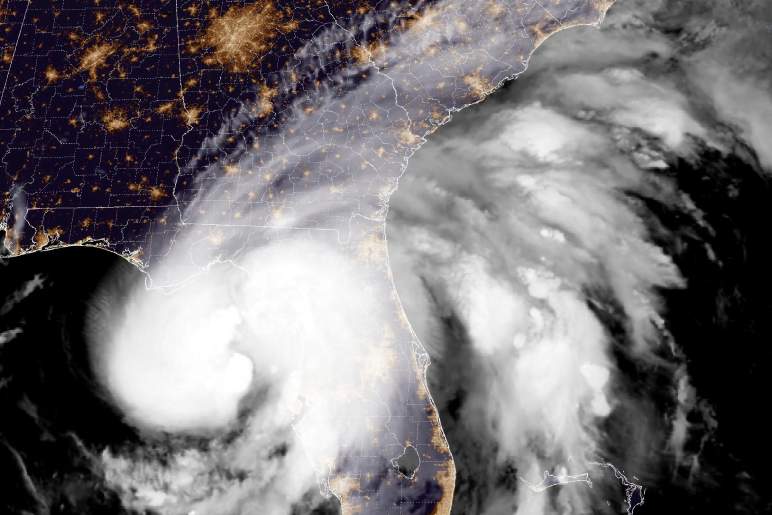
The Atlantic hurricane basin has a long history of producing powerful and destructive storms. Some of the most infamous hurricanes include:
- The Great Hurricane of 1780: Often considered the deadliest Atlantic hurricane on record, it caused catastrophic damage across the Caribbean and claimed thousands of lives.
- Hurricane Katrina (2005): This Category 5 hurricane caused devastating flooding in New Orleans and is one of the costliest natural disasters in U.S. history.
- Hurricane Harvey (2017): This slow-moving storm brought unprecedented rainfall to Texas, leading to catastrophic flooding.
These historical events underscore the importance of understanding and preparing for the Atlantic hurricane season.
Climate Change and Hurricanes
Climate change is intensifying the destructive power of hurricanes.
Warmer ocean temperatures, fueled by global warming, provide hurricanes with more energy, leading to stronger winds and heavier rainfall. Rising sea levels exacerbate storm surges, increasing coastal flooding. While the overall number of hurricanes might not necessarily increase, the proportion of powerful storms is on the rise. This means that when hurricanes do occur, they are more likely to be catastrophic, causing greater damage to lives, property, and ecosystems. The combined effects of climate change are transforming hurricanes into increasingly formidable threats, demanding innovative adaptation and mitigation strategies to build resilience in vulnerable coastal communities.
Hurricane Hazards
Hurricanes pose a variety of hazards, including:
- Strong winds: High-velocity winds can cause catastrophic damage to buildings, trees, and infrastructure.
- Storm surge: The abnormal rise in sea level caused by a hurricane can inundate coastal areas, leading to widespread flooding and erosion.
- Heavy rainfall: Intense rainfall can result in inland flooding, landslides, and mudslides.
- Tornadoes: Hurricanes can spawn tornadoes, further increasing the risk of damage.
The combination of these hazards can have devastating consequences for coastal communities and inland areas.
Preparing for the Atlantic Hurricane Season
Preparation is crucial for surviving a hurricane. Residents in hurricane-prone areas should take the following steps:
- Develop an evacuation plan: Know your evacuation zone and have a plan for where to go.
- Assemble an emergency kit: Stock up on essential supplies such as water, food, first aid supplies, and batteries.
- Secure your home: Protect your property by installing hurricane shutters, trimming trees, and securing loose objects.
- Stay informed: Monitor weather forecasts and heed warnings from local authorities.
Having a well-stocked emergency kit, securing your home, and following evacuation orders can significantly reduce your risk during a hurricane.
The Economic Impact of Hurricanes
Hurricanes can cause billions of dollars in damages, affecting individuals, businesses, and governments. The economic impact includes property damage, business interruptions, infrastructure repairs, and the cost of disaster relief. The tourism industry is particularly vulnerable to hurricanes, as storms can disrupt travel plans and damage coastal resorts.
Climate Change and Hurricanes
Climate change is a complex issue with potential implications for hurricane activity. While scientists continue to study the relationship between climate change and hurricanes, some research suggests that warmer ocean temperatures associated with climate change could lead to more intense storms. However, it’s important to note that the overall number of hurricanes may not necessarily increase.
Conclusion
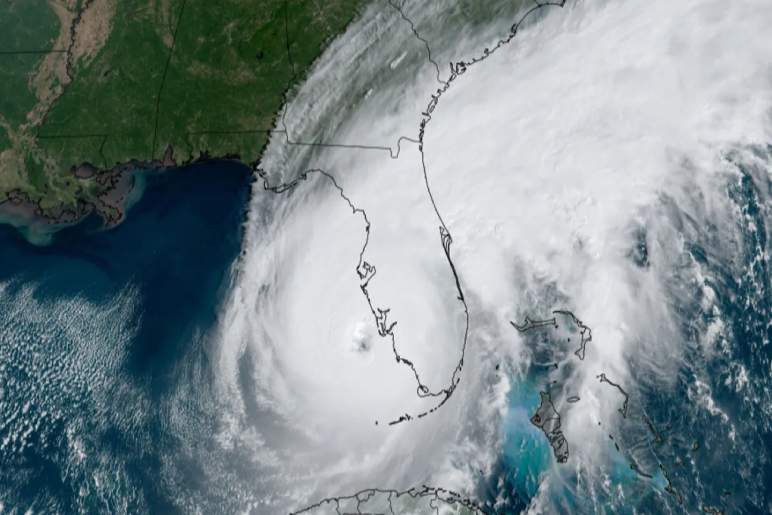
The Atlantic hurricane season is a period of heightened awareness and preparation for coastal communities. Understanding the formation, hazards, and potential impacts of hurricanes is crucial for mitigating risks. By taking proactive steps and staying informed, individuals and communities can increase their resilience to these powerful storms.
Read More:
- Motion of the Ocean: Introduction to Wave Energy
- Managing Your Green Lifestyle: Practical Tips for a Sustainable You
- 5 Ways to Give Your Old Smartphone a New Life: Responsible Recycling Options
Featured Image Source: https://tinyurl.com/3xj5v3n3

